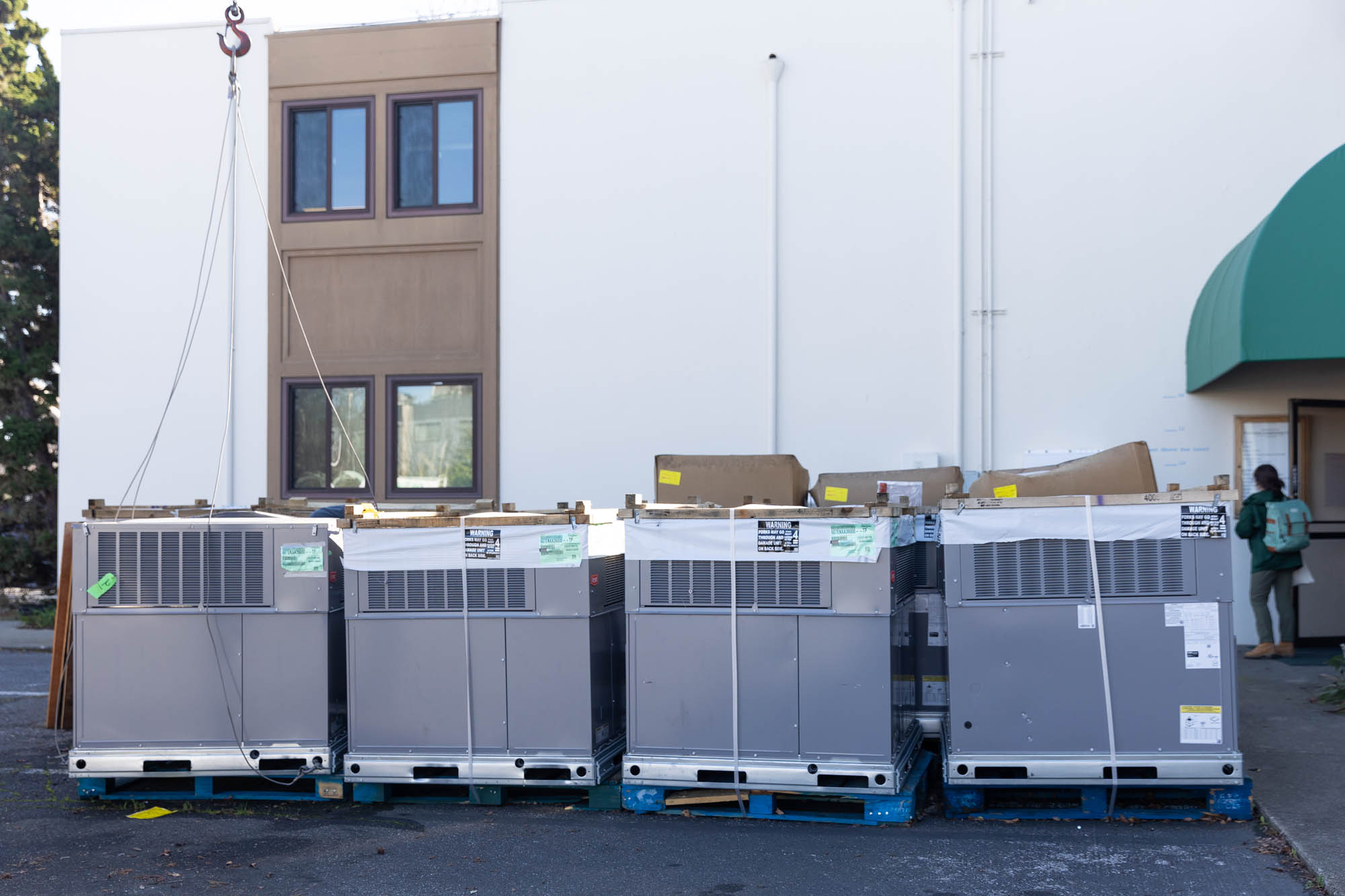Invest in better electric home appliances
As part of the increasing public discussion about climate change, many climate action groups are urging homeowners to replace their natural gas appliances with electric appliances. In the Bay Area, in particular, local action groups are working with municipalities to educate the public about electric appliance alternatives to gas cooking ranges, gas water heaters, and gas furnaces. Recent tabling events, newspaper articles, and editorials emphasize the benefits of electrification of homes including the much higher energy efficiencies of electric heat pumps for space heating and water heating.
Author Sherry Listgarten has written extensively about changing from fossil fuels to renewables. Recently, her article on electrification of homes was published in the Mountain View Voice. She suggested that electrification might occur in stages as the natural gas utilities decommission their gas lines.
I expect the first electrification activities to be replacing old gas water heaters with heat pump water heaters among the homeowners who are aware of the heat pump alternative and find that it's affordable with rebates. This would be the "unmanaged" approach in the Listgarten article and would be slow to drive decommissioning of the gas system. Faster decommissioning would require state or local mandates working with PG&E and other natural gas utilities.
But emphasizing appliance-level and house-level decarb would be a great start to get the ball rolling. In time, volume demand for heat pump water heaters will increase and prices will come down. More contractors will offer heat pumps to replace natural gas appliances. And the scenario Sherry Listgarten describes that would drive up gas prices may end up giving an additional boost to the electrification of water heaters.
In general, replacing a gas furnace with an electric heat pump for space heating costs significantly more than replacing the old gas furnace with a new gas furnace. Rebates up to $8,000 from the Inflation Reduction Act may be available in 2024 but they will likely be limited to lower income households. However, the households that install space heating heat pumps to lower future energy costs will increase the volume of installations and start to lower the installation cost for everyone. Heat pumps are a better technology than gas furnaces, but it's taken climate change to awaken the public to how they can also help to reduce carbon emissions. I suspect eventually nearly everyone will heat their home with heat pumps.
The earliest electrification activities will be done by early adopters and climate conscious homeowners. But you can start the ball rolling by investing in better technologies for your home and at the same time help save the planet.
— Robert A. Hogue is a resident of Menlo Park's Sharon Heights neighborhood. He is also a registered mechanical engineer in California and an active member of Citizen's Climate Lobby & Peninsula Interfaith Climate Action.


Comments
Registered user
Menlo Park: The Willows
on Jan 15, 2024 at 5:06 pm
Registered user
on Jan 15, 2024 at 5:06 pm
One topic that I don't see mentioned is the need for older house to upgrade their wiring and electrical panel to support the additional load that electrical appliances require. Many homes in this area were built after WW2 and while many have been upgraded or replaced, many have not. When these houses were built there were not as many electrical devices and appliances. The wiring was knob and tube and has deteriorated in many of these houses. So on top of the cost of electrical appliances many residents would need to upgrade their electrical panel and the wiring in their houses, not an insignificant cost. I would also point out that with the continued increases by PG&E for electricity, a 13% increase was already approved starting January 1, 2024, the savings from moving to electrical appliance is dwindling unless you have solar are are producing more than you currently need.
To convince people to make the switch first help them get solar. Start by eliminating permit fees, then work with one or two solar companies to offer reduced rates. Next help people upgrade their electrical, again eliminate permit fees. Offer incentives and/or grants to do this.
With the ability of cities to make laws against Gas in houses eliminated, Courts ruled against Berkeley and Atherton dropper their rule as a result, cities will need to use the carrot because they don't have a stick.